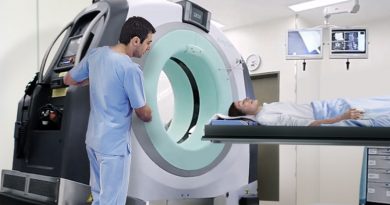Are we failing many by condemning telemedicine as unethical?
South Africa has a very diverse population – with as diverse a medical history of health services and health providers. It is important for the health professional industry to be aware of advances in technology and how this can benefit many in Africa – and not to merely dismiss such technology as evil, ineffective or the use thereof as unethical.
I must admit to being somewhat surprised at reading that the Health Professions Council of SA (HPCSA) condemned telemedicine as unethical. Times Live reported that organisations offering the services of a doctor just a call away were in breach of patients’ rights, including the practitioner-patient relationship, patient confidentiality and informed consent, said HPCSA spokesperson Bertha Peters-Scheepers.
The HPCSA had referred Sanlam [JSE:SLM] and MTN Group [JSE:MTN] telemedicine initiatives and the “Hello Doctor” service to its undesirable business practice committee for consideration.
Concerns about telemedicine and the medical assistance to be provided
As industry watchdog it is important for the HPCSA to guard against any practises that could endanger the lives of South Africans. Similar to the FSB in the financial services industry, the HPCSA will need to investigate and scrutinize operators and the way they perform their services. It appears from reports on Times Live that the following comments have been made by the HPCSA with reference to telemedicine:
- The HPCSA called on practitioners not to participate in telemedicine practices and the public not to use them.
- The HPCSA was concerned about the advice the public might get from these unethical operators, said its acting CEO and registrar Marella O’Reilly.
- The ethical rules and regulations by the HPCSA are there to protect the public and to guide the professions in providing quality health care to our citizens.
- As a general rule, a health care practitioner was required to do a physical examination and assess a patient in order to make a diagnosis.
- The HPCSA said the council would not approve any business model which contravened its ethical rules and regulations and would investigate any health care professional who contravened them.
What exactly is Telemedicine?
Before condemning telemedicine we need to understand what telemedicine is and what the potential or intended reach might be of these services.
I would like to quote from an earlier post titled Insurers not focusing on the benefits of mobile phones in Africa will miss out! International research has revealed some interesting findings on how mobile phones can be used to reach many who have limited or no access to medical doctors.
“Healthcare via mobile phones
It is not only business who is to benefit from the expansion of technology across Africa. There are also new applications in healthcare, and according to the latest research by Frost & Sullivan, health systems in Africa are uniquely positioned to benefit from this mobile revolution.
Information and communication technologies (ICT) have the potential to help poor countries strengthen their health systems and move towards attaining the Millennium Development Goals (MDGs). “Governments in Africa have launched various telemedicine initiatives aimed at extending health services provision,” comments Frost & Sullivan Healthcare Industry Analyst, Ishe Zingoni.
What is Telemedicine?
Telemedicine is essentially the use of ICT to provide health services when the medical professional and patient are separated by distance. “A classic example is that of a specialist located in an urban hospital treating a patient at a distant clinic via e-mail or video conferencing. Telemedicine in this form represents the perfect solution to Africa’s battles with persistent shortage of qualified health professionals,” explains Zingoni.
According to Frost & Sullivan, the mobile phone platform has unlocked unprecedented opportunities for the provision of services to millions of Africans who previously had no access to technology and were virtually unreachable. “The mobile phone is being leveraged to provide services at less than 25% of the cost of traditional healthcare delivery models,” says Zingoni.
How will this impact on South Africa?
If telemedicine can be used effectively elsewhere in the world and in Africa – there should be no reason why this cannot also find a sound and effective application in South Africa. What is needed will be close scrutiny, strict guidelines and enforcement to ensure that the services are not merely a moneymaking initiative.
It is unfortunate to read that the HCPSA have not been very willing to discuss these business models to date. I would like to quote from a report on TimesLive:
“The HPCSA has not returned any of our numerous telephone calls or replied to our letter requesting a meeting to discuss the Hello Doctor business model and the protocols developed by the doctors working on the Hello Doctor telemedicine infrastructure,” said spokesman Andy Milne in a statement.
Milne said he found it ironic that the Council was urging the public not to make use of these “unknown offerings” and purported violation of patient rights when the Council itself did not know, nor had it taken the time to enquire from or contact Hello Doctor as to what these offerings were.
He said Hello Doctor fully supported the HPCSA’s initiative to regulate telemedicine and would be more than happy to work with them in ensuring that patients and consumers, from all income groups, had the opportunity to receive access to high quality, cost effective and accessible healthcare.
Conclusion
I hope that this is indeed an example that not everything we read is to be trusted. We might be harming the chances of the very poor and most remote of patients if we dismiss telemedicine as unethical without careful investigation and at least consideration to regulating these services under the healthcare umbrella.
It should be possible to improve clinical quality and convenience for consumers and patients by developing advanced technology, medical processes and protocols of the highest standards.
It is a basic human right to received medical care – and we need to consider all the methods and alternatives that could be used to provide such care!!




